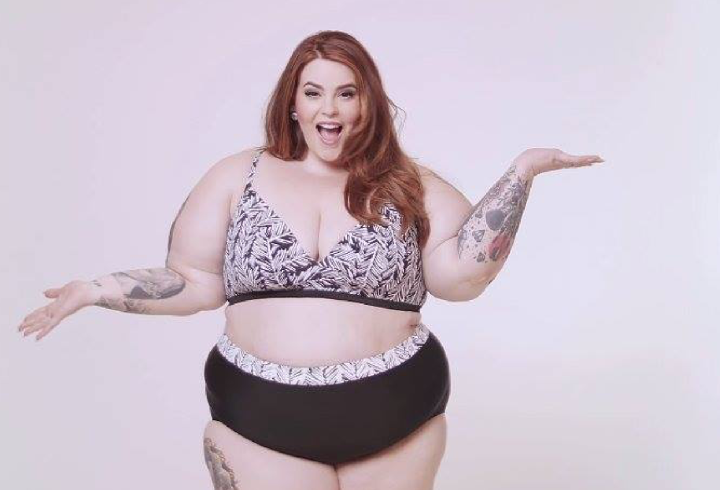
That’s right — Facebook tried to block an image of model Tess Holliday, the first woman of her size and height to be signed by a major modeling agency (MiLK Model Management in London), claiming that the photograph depicted “a body or body parts in an undesirable manner.”
Initially, Australian feminist organization Cherchez la Femme tried to promote the image to raise awareness for an an event entitled “Feminism and Fat.” Holliday is shown in the image wearing a bikini, and according to Facebook’s ad teams, this violated their “health and fitness” policy. As per a message Cherchez La Femme received from the Facebook Ads Team, “Close-ups of ‘muffin tops’ where the overhanging fat is visible, people with clothes that are too tight, people pinching their fat/cellulite (even with full body visible)” are inconsistent with the company’s guidelines. “Ads like these are not allowed since they make viewers feel bad about themselves,” Facebook wrote in its message. “Instead, we recommend using an image of a relevant activity, such as running or riding a bike.”
Cherchez la Femme was horrified by these sentiments, with organizer Jessamy Gleeson telling the Guardian, “We thought it was really horrible and isolating and alienating. Quite simply they need to understand we can use images of fat women to promote women being happy.”
On Monday, Facebook apologized for the ban, asserting that the photo did not, in fact, violate its policies. “Our team processes millions of advertising images each week, and in some instances we incorrectly prohibit ads,” the company said in a statement. “This image does not violate our ad policies. We apologize for the error and have let the advertiser know we are approving their ad.”
But Gleeson doesn’t think this apology is quite enough, contending that the company’s standards are the root of the problem.
“Quite simply they need to understand we can use images of fat women to promote women being happy,” she said. “What about all the cases that don’t receive this media attention? They’ve been wrong in many other thousands of cases, I’m sure.”


